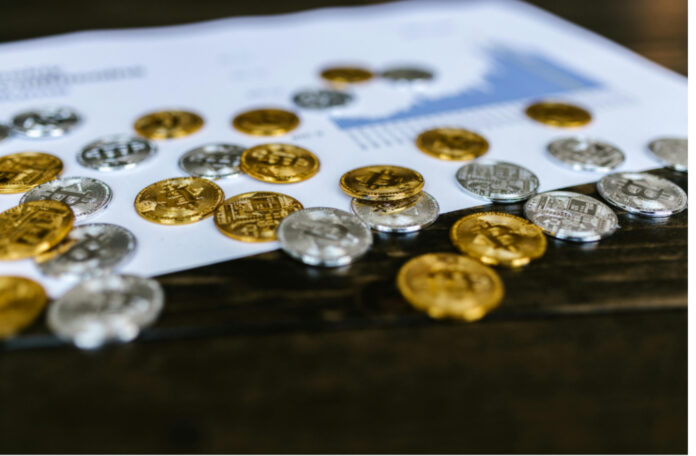Forex has proved quite popular in participating in the global financial markets among Kenyan investors, where it is applied as an avenue of dominant nature. The concept that sits at the core of the dynamics involved with forex trading is that of leverage—a two-edged sword amplifying prospective profits and risks. Understanding how leverage really works, together with its implications on outcomes from trades and how involved benefits and risks are navigated, lies at the very core of the success for every trader within this dynamic and global world of currencies and foreign exchange.
Understanding Forex Leverage
Basically, forex leverage is a loan from the broker that allows one to control larger positions in the market using less capital. It usually comes in terms of a ratio—like 50:1, 100:1 and even higher—basically telling how many times greater a position one can control compared to invested capital. Say, for example, with a leverage ratio of 100:1, it only means that the trader could actually control $100,000 worth of currency by just having a $1,000 margin deposit.
The allure of leverage is that it can amplify returns. A trader can realize extensive profits from relatively small movements in the forex market. This accessibility to large market positions with a limited upfront investment is one of the main reasons why forex trading has become so attractive to retail investors in Kenya and around the world.
The Impact of Leverage on Trading
The upside of leverage is enormous gains; the downside is increased risk of large losses. This amplified risk arises from the fact that, indeed, even the losses are magnified by the leverage ratio. For example, a 1% move against a leveraged position can trigger a 100% loss of invested capital if the leverage ratio is as high as 100:1.
Forex Trading in Kenya: opportunities, risks, and regulations
Most novice traders get swayed by high leverage because it speaks of quick profits. In reality, however, one is extremely cautious while using leverage and rigidly sticks to risk management policies. Proper risk management entails proper stop-loss orders, diversification in trading strategies and careful use of leveraging to limit exposures to the volatility of the markets.
Benefits and Risks in Forex Trading
The greatest benefit associated with leverage when it comes to trading concerned it gives the ability to amplify returns while requiring traders to commit less capital upfront. It creates, in democratized access, the ability of retail traders in Kenya to compete at near-parity levels with institutional investors in the forex market. Added to this is its ability to let traders diversify, meanings that investors can respond to opportunities across global currency markets that lie beyond the reach of ordinary investors.
With the potential for high returns comes great risk. Looking on the wrong side of leverage can result in vast losses that may completely clean out an investor’s capital if not checked. Every trader ought to understand the risks involved with leverage as a means of safeguarding investments and guaranteeing long-term gains.
Regulations and Guidelines in Kenya
Forex trading and transaction activities in Kenya are overseen by the Capital Markets Authority, that sees to it that forex brokers hold fast to some of the strict regulations from this governing body. In this regime lies the key to safeguarding investors through transparency and ensuring fair dealings within trading, securing client funds. By these guidelines, licensed forex brokers involved in trading activities in Kenya would be able to ensure a risk-free environment for traders.
The regulatory framework set by the CMA enables measures that would restrict the leverage ratiossand available to retail traders, avoiding excessive leverage that may pose an undue risk to investors. By adhering to such regulations, the probable risk from leverage is reduced and traders have an opportunity to take advantage of market opportunities within a controlled regulated environment.
Choosing the Right Leverage for You
The choice of a proper leverage ratio is a serious decision in all respects, which has to agree with your personal risk tolerance, trading experience and market conditions. In this respect, the more conservative trader would use the lowest possible leverage ratios, such as 10:1 or perhaps 20:1, for reducing potential losses or preserving capital. To the other side, professional traders having an unusually high-risk appetite could use ratios of 50:1 or even more to maximize the returns on their investment. Traders ought to do their homework on a leverage ratio. Provided that one can assess the trading goals and specific ways for risk management involved, rigorous risk-management techniques—a timely stop-loss order and diversified portfolios—can be implemented to limit the intrinsic hazards in using leverage and avoid a devastating outcome due to sharp swings in markets.
Conclusion: Leveraging Opportunities in Kenyan Forex Markets
Opportunizing on the Forex Markets in Kenya In conclusion, leverage is a powerful tool in the land of forex trading in Kenya, posing opportunities and challenges for investors. By fully understanding how leverage works, its effects on trading strategies and adhering to regulatory guidelines as set out by the Capital Markets Authority, traders can effectively utilizethe potential brought forward by this aspect.
Successful forex trading in Kenya requires the balance of putting up efficient risk management with informed decision-making. With a careful approach toward complex leverage, combined with a well-disciplined trading strategy, Kenyan traders should not miss benefiting from the offered opportunities by these markets while keeping off resultant individual and system-wide risks.
After all, capitalizing on the opportunities presented by any forex market involves continuous learning, adaptability to the current market paired circumstances and adherence to set regulatory standards in pursuit of growth and profitability achievement. Mastering the intricacies of leverage in forex trading definitely calls for additional learning and adaptation to market conditions. With diligence and prudence for risk management, Kenyan traders can turn this into very powerful promoters of their financial goals, all while contributing to the vibrancy of the local forex market.








